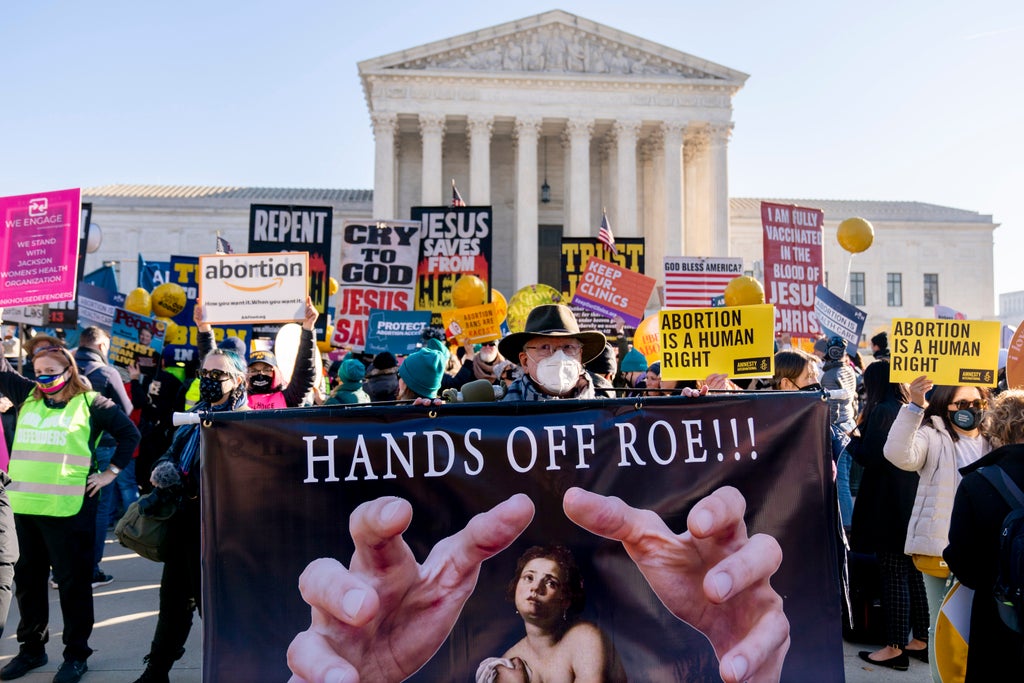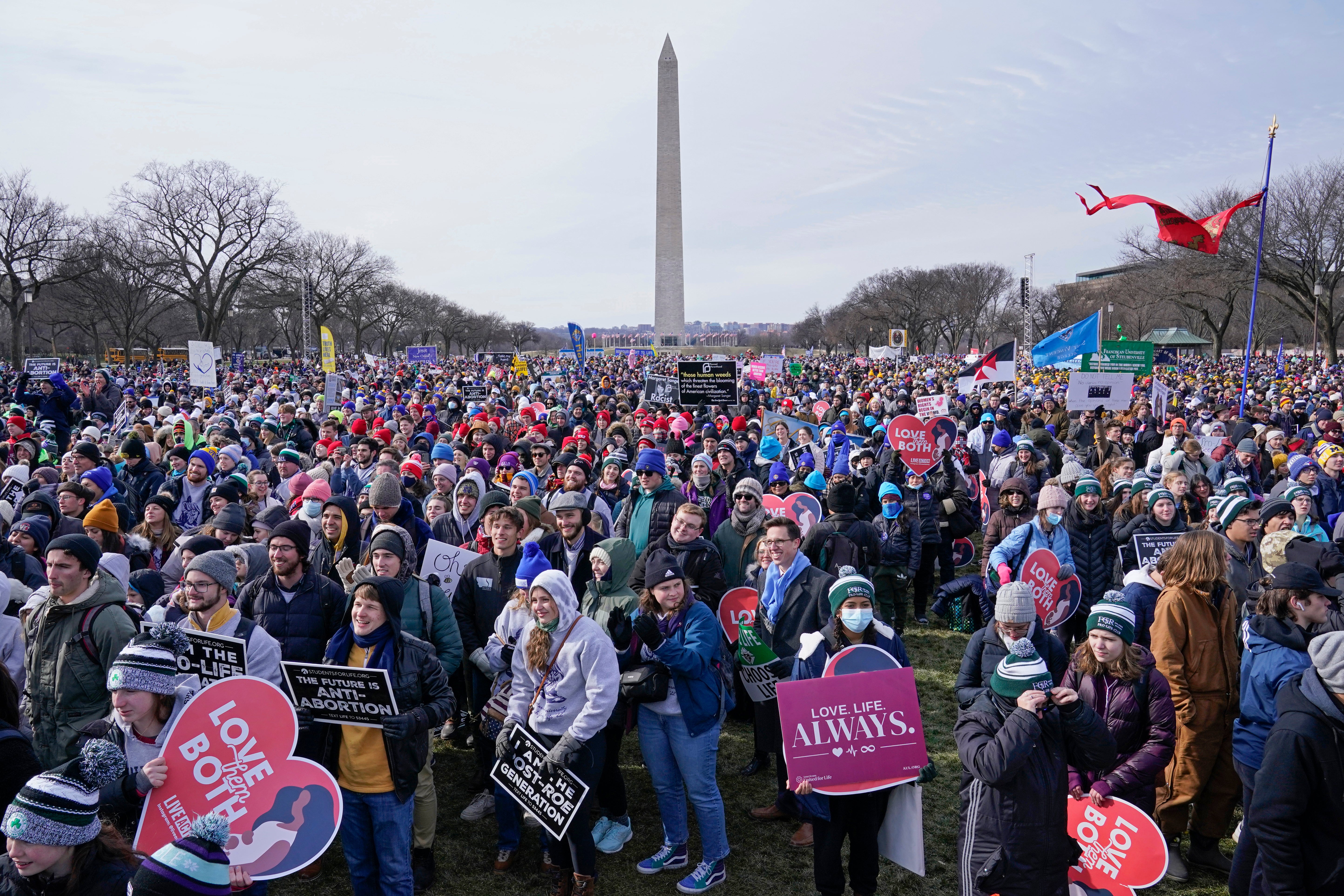
A majority of Americans do not want the US Supreme Court to overturn the precedent established in a landmark case protecting the right to abortion care without excessive government intervention, according to a recent CNN poll conducted by SSRS.
The results, which mirror similar surveys, come as the nation approaches the 49th anniversary of the 1973 decision in Roe v Wade, and the Supreme Court’s looming decision in a Mississippi case that could undermine decades of precedent.
Sixty-nine per cent of Americans would oppose a decision that completely overturns Roe, with just 30 per cent in support.
If the nation’s high court did strike down that precedent, 59 per cent of poll respondents said they still would want their state’s laws to be less restrictive to abortion care.
The Supreme Court is mulling a decision involving a Mississippi law that bans abortions after 15 weeks of becoming pregnant, marking the biggest direct challenge to Roe in years.
It remains unclear whether the court’s six conservative justices – now holding a majority on the bench – will uphold the state law or undermine Roe entirely by allowing states to impose their own bans at different stages of pregnancy.
That outcome would effectively contradict the Roe decision that established a constitutional right to an abortion and prohibited states from banning the procedure before foetal viability at roughly 23 weeks.
Overturning Roe would immediately or quickly ban all abortion in more than 20 states, forcing women who can afford it to travel hundreds of miles to safely access an abortion
But the CNN/SSRS poll finds that only 20 per cent of Americans support a total ban on abortion in their state, while 40 per cent said they want their respective states to impose more restrictive laws governing abortion care.
Meanwhile, 52 per cent of respondents support their state becoming a “safe haven” for women seeking abortions who cannot obtain care in their state.
Partisan and ideological divides drive the results – 86 per cent of Democrats and 89 per cent of liberal respondents from the poll object to overturning Roe, compared with 44 per cent of Republicans and 33 per cent of conservatives.
The poll was performed between 13-19 January among a random national sample of 1,000 adult Americans.
In the current case before the nation’s hight court, Dobbs v Jackson Women’s Health Organization, the state of Mississippi has asked justices to dismiss 50-year-old precedent as well as precedent established in a separate case, Planned Parenthood v Casey, that prohibits states from placing an “undue burden” on abortion access.
This week, the Supreme Court also rejected another attempt by Texas abortion providers to block the state’s recently enacted law that bans most abortions at six weeks pregnancy.
In her dissent, Justice Sonia Sotomayor called her court’s refusal to intervene a “disaster for the rule of law and a grave disservice to women in Texas.”

On 21 January, thousands of anti-abortion activists rallied in Washington DC for the 49th annual March for Life, falling ahead of the anniversary of the Roe decision.
Abortion rights advocates and opponents are bracing for this year’s anniversary – which falls on 22 January – to be the last with Roe intact.
Abortion rights groups have urged Congress to codify abortion protections into law, which the White House supports.
“For two generations, people have relied on the right to abortion to shape their lives and futures,” said Nancy Northup, president and CEO of the Center for Reproductive Rights, among groups defending Mississippi abortion providers at the Supreme Court.
She said in a statement that the fallout from the case in Texas – the second-largest state in the country – “provides a startling preview of the chaos and panic that will happen across large swaths of the nation” without Roe.
“Much of the progress that women have made towards gender equality in the last 49 years was a direct result of access to legal abortion,” she said in a statement. “The United States is an outlier, moving down a dangerous and backward path of regression of rights protections.”







